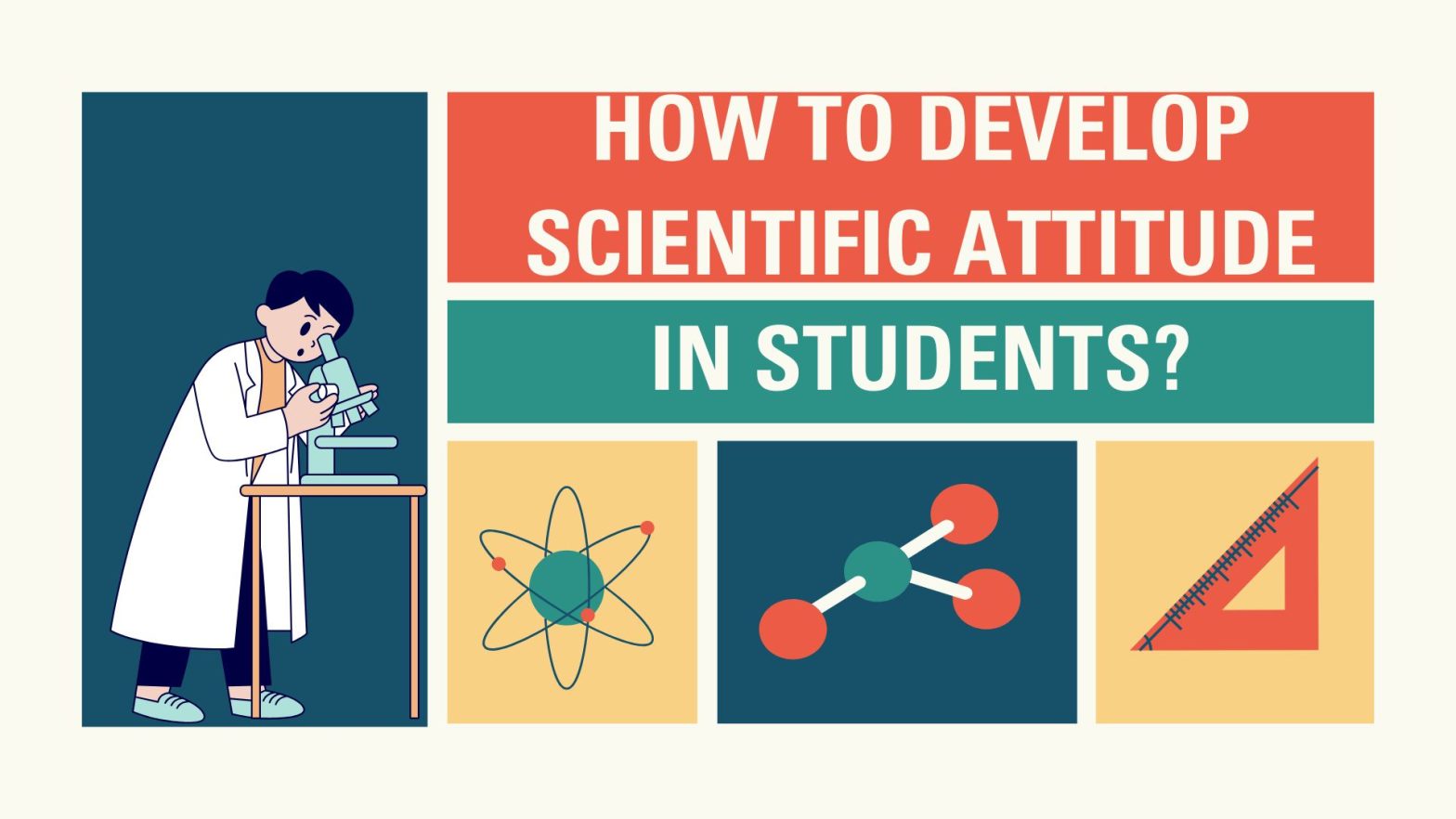
An affinity for science, data, and analytics characterizes a scientific temperament. It is a temperament where one learns to question all statements and thoroughly examine all data before drawing a conclusion. Such a process ensures that the data has a substantial basis for its verification and conclusion. Knowing how to develop scientific attitude in students can help both parents and teachers unleash an inquisitive side that always back data with facts!
A scientific temperament enables individuals to develop evidence-based decision-making skills, critical thinking, and problem-solving abilities. It encourages them to question superstition, have a rational mindset, and make informed choices. All of the above traits combined help in societal and personal advancement.
Any teacher or mentor first needs to have a modern mindset to know how to develop a scientific attitude in students. The above trait enables them to foster an open-minded mindset in children.
A teacher who is not rigid and encourages differences of opinion in the classroom promotes flexibility and adaptability in students. Here is how to develop a scientific temper in students in the classroom:
Teachers must encourage curiosity in the classroom. Students may ask a “why” or “how” at the end of a lesson when they are unable to comprehend a concept. In such cases, teachers must always encourage these queries and address them.
It is the duty of teachers in a classroom to ask open-ended questions to students to check if they’ve understood a lesson. When teachers ask a student a “why” or “how” question about a particular concept, they gain confidence in answering in front of the classroom.
Additionally, such open-ended questions also encourage introverted students to think critically and engage in reasoning. Introverted students may feel shy about asking teachers to clarify their doubts in front of the class. Therefore, a teacher asking them open-ended questions and explaining a concept to them helps resolve their doubts.
Students grasp a concept best when they can see it happening in front of their eyes. A method of teaching that encourages hands-on experimentation is far superior to simple textbook learning.
For instance, here’s how to develop a scientific attitude in students in a science class. Teachers can give students practical assignments when explaining scientific concepts, like a hydraulic jack. Students can build a model of a hydraulic well/pump and explain the idea to fellow batchmates in class.
Any competitive exam will always include a logical reasoning section that tests the candidate's understanding of basic math, science, and English, as well as their analytical skills. Now, it is tough to develop these skills just days before such exams. So, our teachers instill problem-solving and critical thinking in students to foster a scientific temperament from a young age.
Teachers must assign students tasks that require them to analyze data, solve problems, and apply their critical thinking skills. Such a practice prepares students for life ahead and gives them the confidence to sit for any competitive exam to further their career.
How to develop a scientific attitude in students when that attitude is not being used honestly? Even after teachers encourage data analysis and critical thinking in students, they must inculcate truthful reporting.
For instance, you must have heard of buildings or bridges collapsing because of poor architecture. These constructions are often designed by reputable architects who attended the best schools and colleges.
Even well-known educational institutions amount to little when the integrity of a student is in doubt. So, when teachers encourage truthful reporting over the accuracy of results, they build integrity and intellectual honesty in students, along with a scientific temperament.
When teachers ponder how to develop a scientific attitude in students and build students with a scientific temperament, they serve society.
Students who display scientific temperament with integrity contribute to society and lead to societal advancement.
Here is how to develop a scientific attitude in students :
When teachers teach students to question data before concluding, they contribute to building informed citizens. A child who learns to question concepts, theories, and lessons taught in school becomes an adult who learns to question public policies.
They make informed choices when it comes to holding the government accountable and vote better. Such adults become law-abiding citizens who possess a better civic sense, contribute to a clean and green city, and also help lower crime rates.
Students who learn to have an open, questioning mindset and continually develop their reasoning skills grow up to be adults who question superstition. They also grow up to be secular and more tolerant towards different religious beliefs and practices.
Superstition does more harm than good to society. It causes a divide between communities. Students who were encouraged to be more open to differences of opinion during their formative years tend to reject superstition and develop a more adaptive mindset as adults.
Students who develop a scientific temperament early on in life often contribute to and drive scientific discoveries later in life. Such a practice contributes to the nation's overall progress and innovation.
If a child enjoys drawing, the teacher can use it to create creative diagrams that help visualize and understand concepts better. Teachers can use activities outside of academics to develop the students’ reasoning skills. For instance, play activities such as chess, solving crosswords, and riddles encourage the child to think sharply.
A scientific temperament in a student allows them to logically apply concepts they learn in school to the real-life world. Testing concepts practically and using them also enhances their understanding of the concept. Having a scientific temperament also enables them to stay relevant in the industry and gain an edge in the current job market, which is already highly competitive.